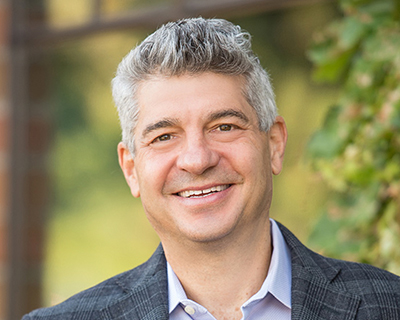For many high-net-worth investors, it’s not enough to earn competitive financial returns. They also want to have a positive impact on the world—whether that means contributing to a cleaner environment, reducing greenhouse gas emissions, promoting peace and prosperity or ensuring a safe, healthy and inclusive society.
Sustainable investments (an increasingly popular umbrella term for the field of social impact investing) are investments that aim to deliver both financial and social performance. They seek to enable investors to do well by doing good.
Sustainable Investing Trends
More and more investors are recognizing the benefits of sustainable investing.
The US Social Investment Foundation reports that, at the end of 2019, there were $17.1 trillion in total assets under management that used one or more sustainable investing strategies, a 42 percent increase in just two years.
That means that nearly one in every three dollars under professional management in the United States pursues a sustainable strategy.
The History of Sustainable Investing
Sustainable investing has a long history in the United States, with roots in organized religion and the anti-slavery movement. Some scholars trace its beginnings to the 18th century, when John Wesley preached on “The Use of Money,” making the case that good Methodists could pursue profits as long as they hurt neither themselves nor their neighbors.
The modern era for sustainable investing began in the 1950s, when some investors began to look for ways to eliminate “sin stocks,” typically those issued by alcohol, tobacco and gambling companies.
As the protest movement of the 1960s took hold, screens expanded to exclude defense stocks and environmental polluters.
The highly effective initiative to divest from apartheid South Africa in the 1980s raised the profile of socially responsible investing considerably.
SRI funds and managers proliferated, and the first socially responsible benchmark, the Domini Social Index (now the MSCI KLD 400), was launched.
Today sustainable investment has become mainstream.
Institutional investors see ESG or environmental, social and governance screens as an important way to manage risk—and so incorporate these factors into their overall portfolio strategies.
Mutual funds, ETFs and retirement plan options make SRI & ESG investing accessible to a broad spectrum of investors, while specialized impact investment strategies in the private equity, venture capital, real estate and private debt sectors have been developed for the high-net-worth market.
Methods of Sustainable Investing
There are four fundamental approaches to sustainable investing which can be pursued separately or together within a diversified portfolio. They include:
1. Socially Responsible Investing (SRI)
SRI is also referred to as negative screening, or excluding companies from a portfolio that don’t align with an investor’s values.
As described above, this began with sin stocks (alcohol, tobacco, and gambling), and later expanded to encompass a growing number of potential social (weapons, prisons, gender equity, human rights) and environmental (fossil fuels, deforestation, pollution) options.
One firm that does a nice job of tracking and grading a mutual fund’s exposure to various causes of concern is As You Sow, a longtime leader in the field of shareholder activism.
In addition to focusing on what is excluded from a portfolio, some SRI funds also seek to increase exposure to companies that offer solutions to some of the world’s most intractable problems.
Investment theory suggests that limiting the scope of the investment universe reduces expected returns. On the other hand, SRI investors argue that more responsible companies should be expected to outperform in the long run.
2. Shareholder Advocacy
As major corporations control vast resources, their decisions and actions can potentially have great impact on people and planet.
Publicly owned companies are required to hold shareholder meetings for the purpose of holding votes on certain key issues, such as the election of board members and executive compensation programs.
Shareholders can also introduce matters to be voted upon at these meetings. This is a long-standing tool for shareholder activists, including the managers of some socially responsible investment funds, to attempt to improve corporate behavior.
This type of shareholder engagement, which can be considered to be a subset of SRI investing, represents an increasingly important part of the sustainable investing landscape.
Data reported in Politco from the Sustainable Investments Institute indicates that a record 282 resolutions focused on environmental, social and governance (ESG) issues were filed during the 2022 proxy season—and 34 of them won majorities.
3. ESG Investing
Environmental, social and governance (ESG) investing, although relatively new has become the predominant type of sustainable investing.
The term is believed to have first come into use in 2005 through an initiative of the United Nations.
It refers to using non-financial data about a firm’s environmental footprint (greenhouse gas emissions, air and water pollution, energy efficiency, waste management), treatment of people (diversity, labor standards, community relations, human rights) and corporate governance (board independence, executive pay, corruption, political activity) to help guide investment decisions.
It is only in the past decade or so that this data has become widely available.
ESG data measures important risk factors that may have been overlooked in the past. For this reason, it has gained rapid and widespread acceptance.
As reported by Morningstar: “ESG isn’t just about values, it’s about long-term risk management that affects all investors.” The downside of broad appeal is that some ESG funds may not align very closely with a sustainable investor’s deeply held values.
Some of the largest ESG funds own major oil and gas companies like Exxon and Chevron.
There are also numerous issues with how ESG data is measured and scored, and a lack of standardization in the field.
As a result, it can require significant due diligence to pick a great ESG fund (see our Investing for Impact in Public Markets article for more detail).
4. Impact Investing in Private Markets
Similar to philanthropists, impact investors are focused on using their resources to make positive, measurable change in the world.
While investing capital is clearly quite different than donating it, the lines can be blurred. For example, non-profits can make investments in social enterprises (see below) and impact investors can accept below-market return expectations in exchange for meaningful impact.
Unlike the SRI and ESG strategies described above, which operate predominantly in the public markets, impact investments are mostly private.
In the public sphere, securities are primarily traded on “secondary” exchanges like the NASDAQ or the New York Stock Exchange.
When you buy or sell shares of a company, someone else (not the company itself) is usually on the other side of that transaction. While you can build a portfolio of public securities that is aligned with your values, these trades on the secondary market have very little (if any) direct impact on the company, and that effect is not measurable.
In contrast, providing new (private) capital for a specific purpose can produce a tangible measurable result.
Common examples include the number of affordable housing units built and gigawatts of clean energy produced.
This is the realm of impact investing.
Types of Impact Investing
Impact investments are typically structured as funds focused on private debt, private equity or private real asset opportunities.
- Loans with Purpose. On the debt side, loans can be used to fund worthwhile purposes like building affordable housing or solar farms, supporting communities and non-profits, or lending to underserved borrowers such as women in developing countries (via microfinance) and minority led small businesses.
- Social Enterprises. Equity investments typically emphasize multiple bottom-line social enterprises (focused on people, planet and profit). These firms, which often are developing or implementing new technologies, are found in industries such as finance, education, health care, renewable energy, waste management, resource efficiency, water purification and sustainable agriculture. Many funds and companies of this type are run by and/or are designed to specifically support individuals from underserved populations.
- Real Assets. Real asset funds develop or acquire tangible assets such as affordable housing complexes , green office buildings, clean energy infrastructure, regenerative farms, land conservation easements and sustainably managed forests. The performance of these (and other) impact investments are often relatively uncorrelated to that of the public stock and bond markets. As a result these offerings can provide a combination of: 1) meaningful and valuable portfolio diversification, 2) measurable impact and 3) significant return potential.
Types of Sustainable Investments
Sustainable investments can take many forms.
From a portfolio construction perspective, they are available in almost every asset class including stocks, bonds and real assets, as well as in different sub-asset classes such as small company stocks or firms in emerging markets.
Sustainable investments also vary thematically, spanning across a wide range of social and environmental objectives.
Economically, they range along a continuum from primarily market-based strategies that seek to limit risk through ESG analysis to values-driven impact investments that may sacrifice some degree of expected return to achieve positive impact.
For example, loans to non-profits or members of disadvantaged communities may be at below market rates.
On the other hand, investments such as green buildings, clean energy, and new technologies may generate very attractive and competitive risk-adjusted returns.
Be advised that private impact investments, particularly in private equity and real assets, may not be suitable for many investors.
They typically offer limited (or no) current liquidity, long investment horizons and high required minimum investment amounts.
It also takes a considerable amount of time to research and fully understand many complex offerings.
Getting Started with Sustainable Investing
Most investors begin with ESG and SRI mutual fund offerings.
Impact investing tends to be most popular with high-net-worth, highly-motivated individuals seeking to make the greatest possible impact with their assets.
Wherever you are on this journey, we applaud your interest and commitment.
Colorado Capital Management is passionate about sustainable investing and helping clients make an impact with their assets. If you have at least $500,000 to invest, we would be delighted to be an expert guide for your impact journey.
As a serial entrepreneur and world traveler, Lee Strongwater, president of Colorado Capital Management, brings a global perspective to investments and life planning.
- Lee Strongwaterhttps://coloradocap.com/blog/author/lee-strongwater/
- Lee Strongwaterhttps://coloradocap.com/blog/author/lee-strongwater/
- Lee Strongwaterhttps://coloradocap.com/blog/author/lee-strongwater/
- Lee Strongwaterhttps://coloradocap.com/blog/author/lee-strongwater/
Editor’s Note: This blog post is for informational purposes only and does not constitute financial, legal, or tax advice. Readers are encouraged to consult with a qualified professional regarding their individual circumstances. Please refer to our firm’s website for full disclosures and important information: CCM Website Disclaimer












